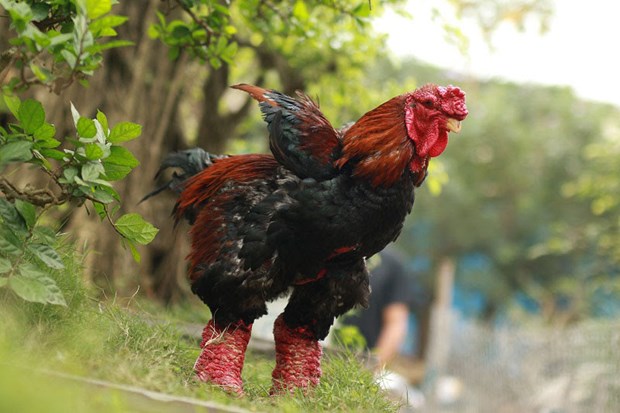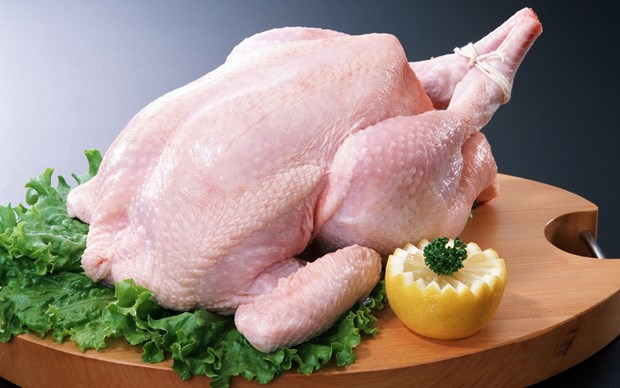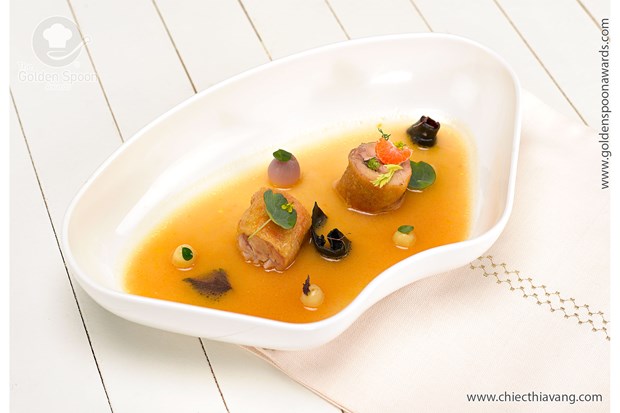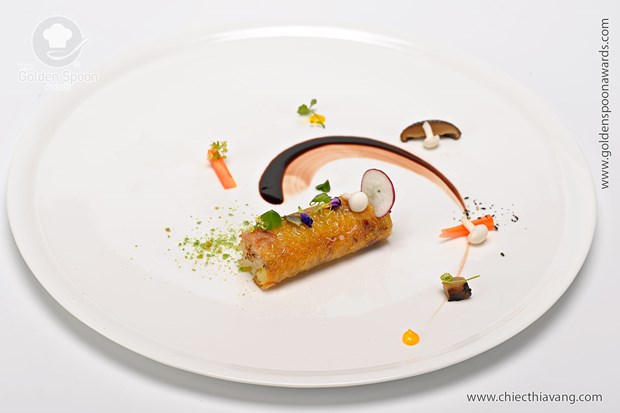
A chicken of Dong Tao breed from Vietnam. Photo of Kien Thuc Online
There
is no cuisine in the world that excludes the use of chicken, an all-purpose
meat that lends itself to a wide range of dishes, with something to suit
everyone. It would be a pity however to take it for granted: here are some
curious facts and figures not to be missed.
1 year and an approximate weight of 1.5 Kg are the
characteristics of an authentic chicken. If they are younger and weigh no more
than 1 kg, we are talking about “spring chickens”. If they are aged around 6
months, then they are classified as cockerels.
There
are 6 principal chicken breeds: Asian,
British, Italian, Dutch, US and German. At the present time, there are actually
30 different breeds. Italy boasts the highest number of breeds - about twenty
in all - the most famous of which are the Ancona, Padovana, Romagnola,
Siciliana, Boffa, Ermellinata di Rovigo, Livorno and Valdarno.
4,5 billion chickens are bred in
China, the world’s most important producer. It is followed by the United States
(1.98) and Indonesia (1.92). Lagging way behind come all the other principal
producers: Brazil (1.33), Iran (0.93), India (0.73), Mexico (0.53), Pakistan
(0.45), Russia (0.45) and Japan (0.31).
24% is the average increase in poultry
production forecasted from now until 2025. It is estimated that by then,
chicken will account for about 50% of the planet’s meat consumption.

Photo of Congly.
21% of world chicken exports come from
the Netherlands. On its heels, we find Poland (13.3%), United States (12.6%),
Belgium (12%), Germany (8%), China (3.5%), France (3.4%), Italy and Belarus
(2.8%), and Hungary (2%).
300 eggs may be produced every year by
one hen. We certainly need plenty of these “record breaking” hens to satisfy
the demand of countries like the United Kingdom, where the daily consumption
amounts to 34 million eggs.
114 kilocalories are contained in 100
grams of chicken meat. This is quite a modest intake, especially if we consider
its other nutritional values. In 100 grams of chicken breast, in fact, we have
21 grams of proteins, 2.6 grams of fat, traces of carbohydrates, 116 milligrams
of sodium, 210 milligrams of phosphorus and 370 milligrams of potassium.

Stewed chicken with pink mandarin by Chef Tran Minh Dung, Runner-up in the Southern regional semifinal round of the Golden Spoon Awards 2013.
10,43 milligrams of niacin are contained
in 100 grams of chicken breast. This quantity represents as much as 57.9% of
the recommended daily intake of this all important vitamin. We can also get a
lot of vitamin B6 (37.5%) and B5 (23.8%) from chicken meat.
8 kilos are the registered weight of
some specimens of Brahma chickens. Also known as “giant chicken”, videos of
this breed abound on Youtube. It is an Asian chicken, weighing 4.5 kilos on
average, which is bred almost exclusively for shows.
5
hours is the time
needed to cook a large chicken on the indirect heat of a barbecue. For a
perfect result, leave the chicken in a salt and water solution for an entire
night. The next day, remove it from the liquid, pat dry and rub with baking
soda to facilitate the mythical Maillard reaction.

The "weathy" chicken by Chef Le Van Boi, Runner-up in the Southern regional semifinal round of the Golden Spoon Awards 2013.
300
millilitres of
coconut milk are needed to make a delicious dish of Thai chicken. Mix the milk
with three spoonfuls of curry powder. On one side, dice 600 grams of chicken
breast and dust them with rice flour. Toss the chicken in a wok with some
gently fried onion for 4 minutes before adding the aromatized coconut milk. Let
everything cook for a further ten minutes before serving nice and hot.
1758
was the year when
Linnaeus attributed the name of gallus domesticus to the chicken. To date, the
origin of this domesticated fowl has still not been clarified, owing to its
numerous and ancient crossbreeds.
By FDL